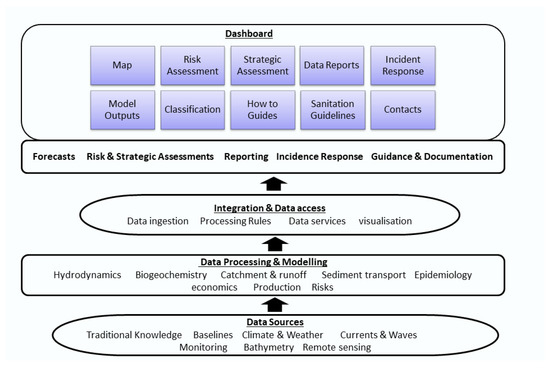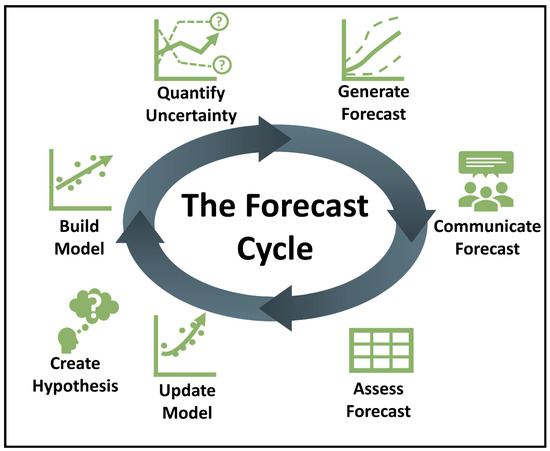Near-Term Ecological Forecasting
A topical collection in Forecasting (ISSN 2571-9394). This collection belongs to the section "Environmental Forecasting".
Viewed by 6536Editor
Interests: ecological forecasting; data assimilation; model-data cyberinfrastructure; terrestrial carbon cycle; natural disturbance; soil microbiome; phenology; tick-borne disease
Topical Collection Information
Dear Colleagues,
Near-term (daily to interannual) ecological forecasting is a rapidly growing research area focused on producing continually updated, actionable predictions of the future state of ecosystems, their services (e.g., water quality, forest products, fisheries, carbon sequestration), and risks (e.g., infectious disease, invasive pests) that increase scientific understanding and improve environmental decision making, management, and conservation.
This Special Issue is open to papers that address individual ecological forecasts, multi-forecast comparisons/competitions, or other topics that advance research in this area, such as theory, standards, best practices, protocols, decision support, methods, and cyberinfrastructure. Examples include, but are in no way limited to, papers coming out of the Ecological Forecasting Initiative’s NEON forecasting challenge. Papers are open to multiple approaches (statistical, machine learning, process-based, expert judgement) and systems (terrestrial, freshwater, marine; population, community, ecosystem) and could draw upon knowledge and research in the biological, social, computational, and physical environmental sciences.
Dr. Michael C. Dietze
Guest Editor
Manuscript Submission Information
Manuscripts should be submitted online at www.mdpi.com by registering and logging in to this website. Once you are registered, click here to go to the submission form. Manuscripts can be submitted until the deadline. All submissions that pass pre-check are peer-reviewed. Accepted papers will be published continuously in the journal (as soon as accepted) and will be listed together on the collection website. Research articles, review articles as well as short communications are invited. For planned papers, a title and short abstract (about 100 words) can be sent to the Editorial Office for announcement on this website.
Submitted manuscripts should not have been published previously, nor be under consideration for publication elsewhere (except conference proceedings papers). All manuscripts are thoroughly refereed through a single-blind peer-review process. A guide for authors and other relevant information for submission of manuscripts is available on the Instructions for Authors page. Forecasting is an international peer-reviewed open access quarterly journal published by MDPI.
Please visit the Instructions for Authors page before submitting a manuscript. The Article Processing Charge (APC) for publication in this open access journal is 1800 CHF (Swiss Francs). Submitted papers should be well formatted and use good English. Authors may use MDPI's English editing service prior to publication or during author revisions.
Keywords
- ecology
- ecosystem
- environmental
- natural resources
- terrestrial
- freshwater
- marine
- competition







